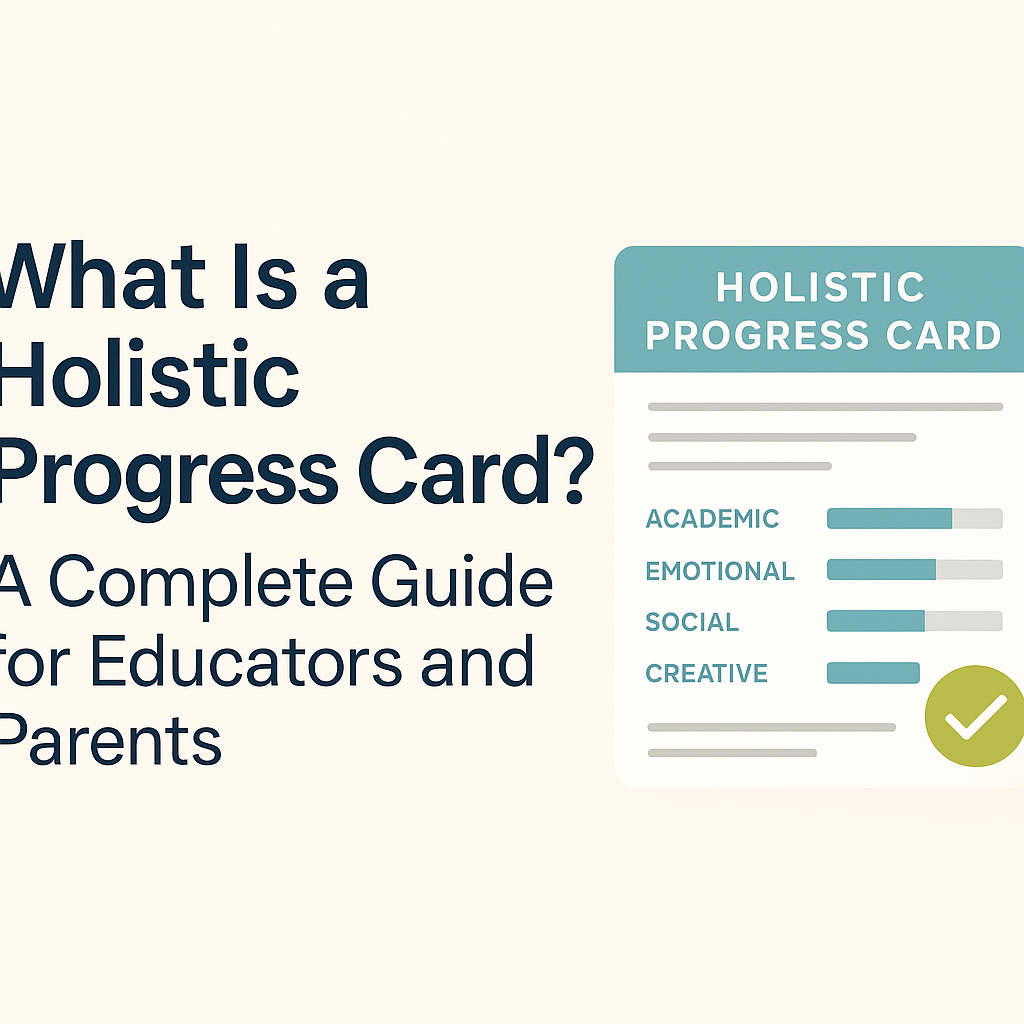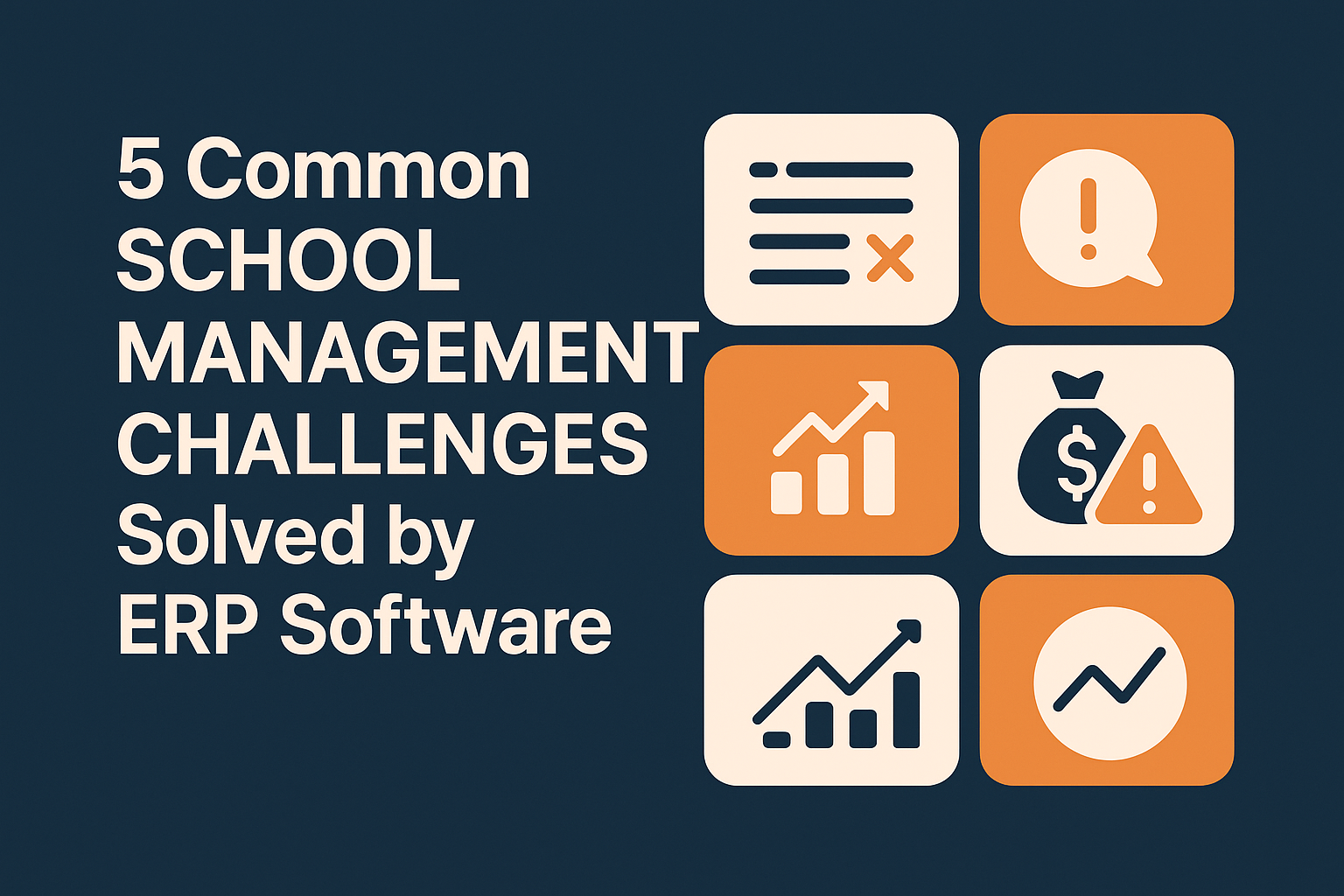What Is a Holistic Progress Card? A Complete Guide for Educators and Parents

Strong 8k brings an ultra-HD IPTV experience to your living room and your pocket.
Is your school still measuring student success by grades alone?
If so, it might be time to rethink how you're assessing learning — and how your assessment systems reflect your school's values and educational vision.
In today’s rapidly evolving educational landscape, traditional report cards — with their narrow focus on academic scores — are no longer sufficient. Parents are demanding more meaningful insights into their child's growth, and educators are seeking ways to nurture well-rounded individuals rather than high scorers.
Enter the Holistic Progress Card (HPC) — a transformative approach to student assessment that aligns with the ideals of whole-child development, as emphasized in frameworks like India’s National Education Policy (NEP) 2020 and globally endorsed by institutions like UNESCO.
In this guide, we’ll walk you through everything a school owner needs to know about holistic progress cards: what they are, how they work, why they matter, and how to implement them effectively.
What Is a Holistic Progress Card?
A Holistic Progress Card (HPC) is an assessment tool designed to evaluate a child’s overall development — not just academic performance. Unlike traditional report cards that reduce learning to marks and grades, HPCs capture a broader spectrum of competencies including emotional intelligence, social skills, values, creativity, physical well-being, and character development.
In Simple Terms:
A holistic progress card tells the full story of a child's journey — academically, emotionally, physically, and socially.
This system is rooted in the philosophy of competency-based education and formative assessment, where the focus is on learning outcomes, not just content coverage. HPCs foster student agency, continuous feedback, and growth-oriented reflection — key tenets for modern schools.
Core Components of a Holistic Progress Card
Here are the main elements that set holistic assessment apart:
1. Academic Proficiency
The academic section of an HPC doesn't merely show marks — it provides insight into competency development in subjects like math, science, languages, and social studies. This can include:
- Conceptual understanding
- Application of knowledge
- Problem-solving skills
- Inquiry and curiosity
Instead of percentages, schools often use descriptors or rubrics such as "Emerging," "Developing," and "Mastering."
2. Social and Emotional Learning (SEL)
Emotional intelligence is a crucial predictor of success in life. HPCs incorporate indicators such as:
- Self-awareness and emotional regulation
- Empathy and perspective-taking
- Collaboration and communication
- Conflict resolution
This is particularly important in helping educators and parents understand a child’s interpersonal strengths and areas for growth.
3. Character and Values
Schools play a vital role in shaping values. HPCs can track the child’s development in areas such as:
- Integrity and honesty
- Respect and responsibility
- Perseverance and resilience
- Leadership and teamwork
Some schools even include teacher comments, peer feedback, or student self-evaluations on these traits.
4. Creativity and Innovation
Creative thinking and problem-solving are 21st-century skills. This section can highlight:
- Participation in arts, music, or drama
- Design thinking and innovation projects
- Originality and divergent thinking
5. Physical Development and Wellness
This area includes:
- Participation in sports or physical activities
- Gross and fine motor development (especially in younger grades)
- Awareness of nutrition and personal health
6. Student Self-Assessment
One of the most powerful aspects of holistic progress cards is involving students in their own evaluation. Self-reflection forms — often completed during portfolio reviews — promote metacognitive skills and help learners set personal goals.
Why School Owners Should Care: Key Benefits
As a school owner, you’re not just managing operations — you’re shaping your institution’s reputation, learning culture, and long-term sustainability. Here’s why adopting HPCs is a strategic move:
1. Differentiation in a Competitive Market
In an era where parents are increasingly aware and discerning, offering a progressive assessment system like HPC can distinguish your school from others relying on outdated grading models.
2. Alignment with National Education Policy (NEP 2020)
NEP 2020 mandates a shift toward competency-based and formative assessment. Holistic progress cards are a direct response to this requirement — positioning your school as future-ready and compliant.
3. Improved Parent Satisfaction and Retention
Parents want a complete picture of their child — not just test results. When you offer rich insights into a child’s strengths, challenges, and unique qualities, you build deeper trust and long-term loyalty.
4. Teacher Development and Accountability
Implementing HPCs requires ongoing teacher training and calibration — which elevates the overall quality of instruction. When teachers focus on the whole child, their teaching naturally becomes more intentional and impactful.
5. Positive School Culture
When students feel seen and valued for more than marks, motivation and engagement increase. Holistic progress cards foster inclusive, supportive, and growth-oriented environments.
Implementation Insights: What It Takes
Transitioning to holistic assessment isn’t about plugging in a new template — it’s a pedagogical shift. Here’s what school leaders must consider:
A. Teacher Training and Buy-In
- Conduct workshops on competency-based education and formative feedback
- Create rubrics collaboratively with faculty to ensure clarity and consistency
- Encourage peer reviews and learning circles among staff
B. Tools and Templates
You can use custom-designed print cards, spreadsheets, or adopt platforms like:
- Schoollog
- ReportBee
- LEAD School Assessment tools
- Microsoft Teams / Google Classroom plugins
Make sure your chosen format is easy to interpret and visually clean for parents.
C. Parent Orientation
Without buy-in from parents, even the most well-crafted progress cards can fall flat. Host regular parent sessions to:
- Explain the rationale and benefits of holistic assessment
- Show examples of how their child’s progress will be tracked
- Provide space for feedback and questions
D. Student Involvement
Encourage students to:
- Reflect on their learning habits and emotional well-being
- Set goals and track their own growth
- Participate in peer feedback and showcase portfolios
This fosters ownership and intrinsic motivation.
Conclusion
As a school owner, adopting holistic progress cards isn’t just about changing a reporting format — it’s about leading a shift in mindset. You’re not just documenting grades; you’re capturing growth. You’re not just informing parents; you’re empowering families.
In a world that increasingly values emotional intelligence, adaptability, and creativity, your assessment system must reflect the kind of learner you aim to nurture.
A school that assesses holistically, educates holistically — and grows holistically.
Note: IndiBlogHub features both user-submitted and editorial content. We do not verify third-party contributions. Read our Disclaimer and Privacy Policyfor details.





